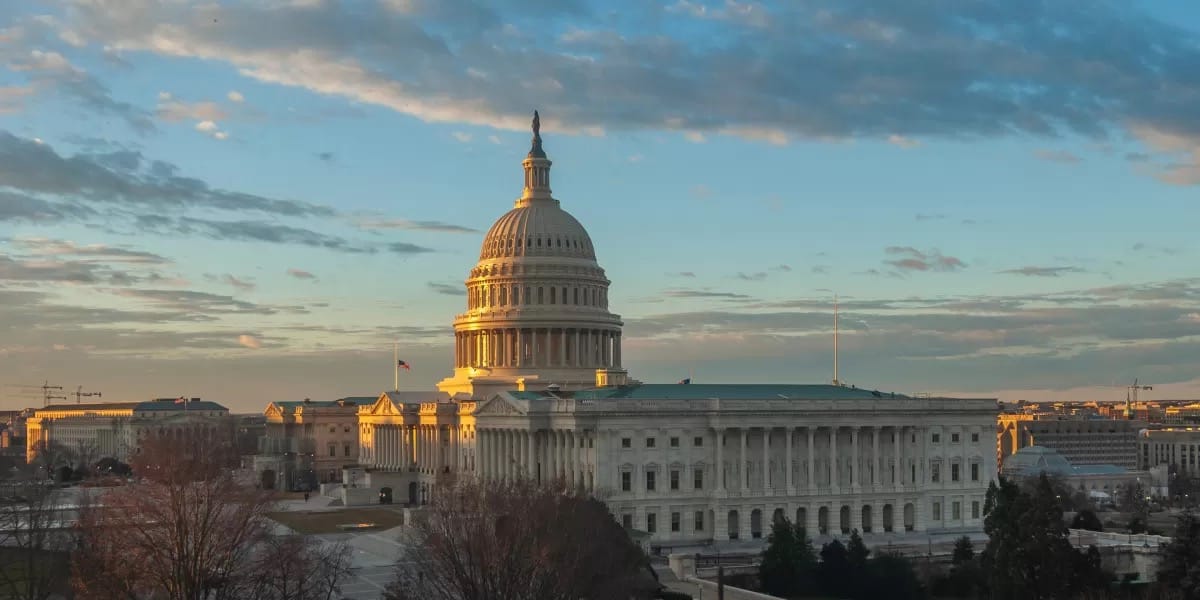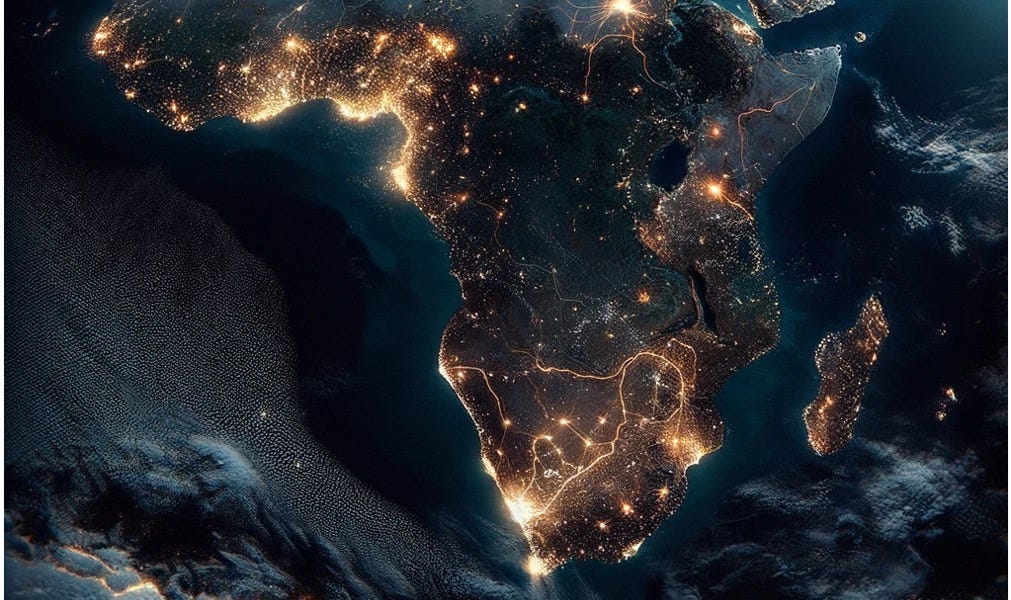Top 5 US news stories
October 1 2025

Government Shuts Down Amid Spending Deadlock Over Health Subsidies
Expiring ACA Subsidies Emerge as Key Sticking Point in Shutdown Fight
Early-Onset Cancers Surge; Researchers Point to Post-War Lifestyle Changes
Gen X Nears Retirement Weighed Down by Crushing Student Loan Debt
Sahel Security Worsens; Juntas Show 'Buyer's Remorse' Over Russian Pacts
Newsletter sponsor

BREAKING...US FEDERAL GOVERNMENT SHUTS DOWN...
1. Government Shuts Down Amid Spending Deadlock Over Health Subsidies
The government shut down on Wednesday morning at 12:01 a.m., amid a bitter spending deadlock between President Trump and Democrats in Congress that will disrupt federal services and leave many federal workers furloughed. It was the first federal shutdown since 2019, when parts of the government were shuttered for 35 days in a standoff between congressional Democrats and Mr. Trump over the president’s demand to fund a wall at the southern border. This time, the dispute is over Democrats’ demand that the president agree to extend expiring health care subsidies and restore Medicaid cuts enacted over the summer as part of Mr. Trump’s marquee tax cut and domestic policy law. The shutdown became all but inevitable on Tuesday night after Senate Democrats voted just hours before a midnight deadline to block Republicans’ plan to keep federal funding flowing.
NYT
2. Expiring ACA Subsidies Emerge as Key Sticking Point in Shutdown Fight
Enhanced subsidies for Affordable Care Act health-insurance plans are set to expire at the end of the year—and what Congress decides to do about them could be crucial to any deal to end a government shutdown. While Republicans had pushed to temporarily extend current government funding levels to buy time for negotiations, Democrats have said they won’t vote for any bill that excludes an extension of the ACA subsidies. Here’s what to know about the tax credits at the heart of the shutdown fight. Premium tax credits are a form of government subsidy that caps the maximum percentage of household income an individual pays toward their ACA health coverage. In 2021, the Biden administration expanded eligibility for the tax credits and increased subsidy amounts. The enhanced provisions eliminated the prior income cap for eligibility—400% of the federal poverty level of $32,150 for a family of four—and lowered the maximum percentage of income enrollees can be required to pay out of pocket. The enhanced subsidies were extended in 2022 under the Inflation Reduction Act, and are set to expire at the end of 2025. About 24.3 million Americans are enrolled in the ACA, with about 22.4 million of them receiving subsidies, according to health researcher KFF. The Congressional Budget Office estimates extending the enhanced subsidies would cost $350 billion through 2034.
WSJ
3. Early-Onset Cancers Surge; Researchers Point to Post-War Lifestyle Changes
Ten years ago, Dr. Kimryn Rathmell, a kidney oncologist who was then at Vanderbilt University, noticed a startling trend: Many younger patients were coming to her with kidney cancer, including an 18-year-old with metastatic disease, which Dr. Rathmell had never seen in someone so young. She assumed these patients had been disproportionately referred to big cancer centers like hers. But this spring, when researchers at the National Cancer Institute published a report showing that, between 2010 and 2019, rates of 14 cancers increased among people under 50 in the United States, the significance of her experience came into focus. For years, studies and news articles have noted rising rates of “early-onset” cancers, generally defined as those occurring in adults under 50 years old. But the breadth of the trend over time and place, and across more than a dozen cancer types — including breast, colorectal, kidney, pancreatic, stomach, testicular and uterine cancer — is finally becoming clear. Early-onset cancers remain rare. But data show that their global incidence has risen since 1990, amounting to thousands more new cases each year. For example, in 2019, there were 4,800 more early-onset breast cancer cases in the United States than would have been expected had 2010 rates persisted. More screening and better detection probably explain some of the rise. But scientists say there are signs that something else, something more, is going on. Increasingly, they are marshaling their efforts to discover what that is. Cancer researchers often point to a historical inflection point: the 1950s. People born in or around that decade started experiencing higher rates of early-onset cancer in the 1990s. The risk increased with each successive group: Those born in 1990, for example, have a two- to threefold increased risk of certain cancers compared with those born in 1955. This type of “birth-cohort effect” suggests that environmental and lifestyle exposures that have become more common in recent decades may be behind the increase in early-onset cancer, scientists said. Much about our environment and daily life changed starting in the postwar boom years, especially in high-income countries, said Dr. Shuji Ogino, a professor of epidemiology at the Harvard T.H. Chan School of Public Health. We are less physically active. We consume more processed foods and sugar. We encounter plastics and forever chemicals everywhere we turn. We’re even sleeping less, according to some data.
NYT
4. Gen X Nears Retirement Weighed Down by Crushing Student Loan Debt
One of the most enduring relationships of Rick Betancur’s adult life is with his student debt. The federal loans have followed him for more than 26 years, longer than he’s been married. While his family has doubled with the addition of two children, his $74,000 in graduate school debt has more than quadrupled to $300,000. When the 55-year-old New Jersey chiropractor looks at his current balance, he is stupefied. He’s made enough payments toward the loan throughout the years to cover the initial amount he borrowed, but it’s been buried in decades of mounting interest. His balance continues to accrue interest—and repercussions, most recently the denial of a home-equity loan application. Decades of payments meant Betancur wasn’t able to save for retirement until later in life. Today he has a little over $200,000 saved, a fraction of the seven times one’s salary Fidelity Investments recommends workers have by 55. Gen X is barreling toward retirement with an excruciating student-loan burden. The six million-plus borrowers aged 50 to 61 have the highest average balance of any age group, at $47,857, according to Federal Student Aid data. Now, as parents and grandparents, they are passing along a skepticism toward higher education and its hefty price tag, part of the broader unraveling of America’s “college for all” ideology. The oldest Gen Xers were born in 1965, the same year the Higher Education Act created the modern student-loan system. The baby boomers older than them didn’t have the same access, and the millennials younger than them had greater awareness of the long shadow debt can cast. But for a brief window when the “forgotten generation” was reaching college age, student loans conveyed all of the promise of American upward mobility with none of the pitfalls.
WSJ
5. Sahel Security Worsens; Juntas Show 'Buyer's Remorse' Over Russian Pacts
Russia, not long ago a rising military force in Africa, is now struggling to maintain its footprint on the continent. The Kremlin’s new official guns-for-hire military force, the Africa Corps, has failed to replicate the financial success and political sway once held by Russia’s private Wagner Group mercenary outfit. And some of Wagner’s own African ventures have unraveled since 2023 when its founder, Yevgeny Prigozhin, rebelled against President Vladimir Putin and then died when an explosive device blew the wing off his plane at 28,000 feet. Military juntas in Mali, Niger and Burkina Faso, according to a senior U.S. military official, are now experiencing “buyer’s remorse” after ousting U.S. and French troops over the past three years and, to varying degrees, accepting Moscow’s help fighting al Qaeda and Islamic State insurgents. The shift shows how Russia’s influence across the Sahel, the semidesert band stretching across Mali, Burkina Faso, Niger and beyond, is receding after the years when Prigozhin was one of the most powerful figures there. Security experts and Western defense officials now say Moscow’s involvement might instead have contributed to a worsening security outlook in the region, so much so that the Sahel is perhaps the hottest battlefield in the global contest between Islamist militants and the West and its allies. Over the past year, almost 11,000 people have died in connection to the Islamist insurgency in the Sahel, according to data analyzed by the Pentagon-funded Africa Center for Strategic Studies, around half of whom were killed in direct fighting.
WSJ

October 1 1949: Mao Zedong proclaims People’s Republic of China
Naming himself head of state, communist revolutionary Mao Zedong officially proclaims the existence of the People’s Republic of China. The proclamation was the climax of years of battle between Mao’s communist forces and the regime of Nationalist Chinese leader Chiang Kai-Shek, who had been supported with money and arms from the American government. The loss of China, the largest nation in Asia, to communism was a severe blow to the United States, which was still reeling from the Soviet Union’s detonation of a nuclear device one month earlier.

We are temporarily pausing our podcasts as we revamp our app so any article can be read as audio
Found a mistake? Have a news tip or feedback to share? Contact our newsroom using the button below:
citizen journal offers three flagship products: a daily national news summary, a daily Kansas news summary, and local news and school board summaries from 23 cities across 5 states. Use the links in the header to navigate to national, kansas, and local coverage. Subscribe to each, some, or all to get an email when new issues are published for FREE!
Sponsors (click me!)





Sources
- https://www.nytimes.com/2025/09/30/us/politics/government-shutdown-deadlock.html
- https://www.wsj.com/politics/policy/government-shutdown-aca-subsidies-obamacare-762ed9a9?mod=WSJ_home_mediumtopper_pos3
- https://www.nytimes.com/2025/10/01/well/cancer-young-people.html
- https://www.wsj.com/personal-finance/student-loan-debt-gen-x-619cffda?mod=hp_lead_pos7
- https://www.wsj.com/world/africa/russias-ambitious-plans-in-africa-are-unraveling-f151906d?mod=hp_lead_pos11


